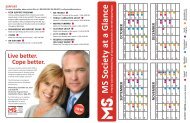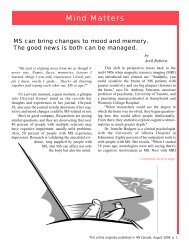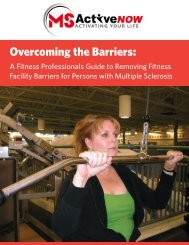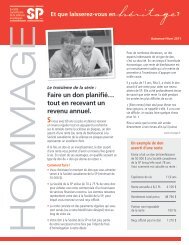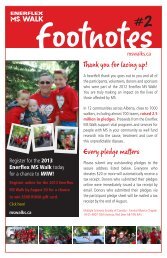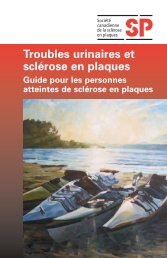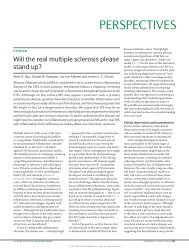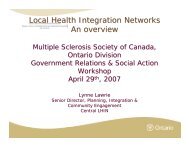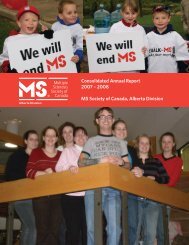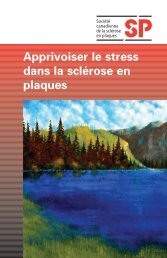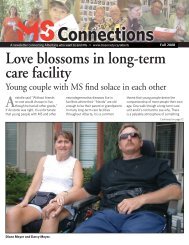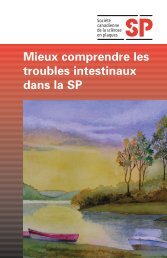Evidence-based medicine (EBM)
Evidence-based medicine (EBM)
Evidence-based medicine (EBM)
Create successful ePaper yourself
Turn your PDF publications into a flip-book with our unique Google optimized e-Paper software.
(how likely it is that an event will or will not occur), and not on the concept of proof.<br />
For example, a recent study reported that 70 per cent of people who took the<br />
treatment improved substantially. These fi ndings give us an idea of the likelihood<br />
of improvement, but the fi ndings cannot predict with 100 per cent accuracy what<br />
will happen to any individual who takes the treatment. If a treatment is effective<br />
for seven out of 10 people, you still don’t know if it will work for you until you try<br />
it. However, if an alternative treatment works for nine out of 10 people, you may<br />
have a better chance of success with the alternative.<br />
That being said, we’re all familiar with the headlines – drug X causes cancer, food<br />
Y prevents dementia, activity Z induces weight loss. Perhaps these headlines<br />
should read “drug X might cause cancer in mice,” “food Y might help to prevent<br />
dementia in middle class Norwegians who are also taking aspirin” and “activity<br />
Z induces weight loss when combined with a healthy diet in some but not all<br />
people.”<br />
The truth is, most health information is incredibly complex. Reporters do not<br />
necessarily have the time to read and analyze entire research papers, and instead<br />
may rely on short press releases for their information. Further, some reporters<br />
may not have the knowledge or experience that they need in order to critically<br />
evaluate complex scientifi c information. Deciding which media reports to<br />
trust and which to question is not easy, especially because the reports are not<br />
consistent and sometimes seem contradictory. One day the headlines might<br />
read “Antidepressants increase suicide risk in teens” and the next, they read<br />
“Antidepressants lead to fewer, not more, teen suicides.”<br />
If you’re wondering about the validity of a news report, it might help to ask<br />
yourself a few questions about the story. Is the story actually an advertisement<br />
for something? Is it sensationalized to make a better selling story? Is there any<br />
background information provided that might help you evaluate it better? Does<br />
the story give you different points of view, or just one? Does the report provide<br />
expert opinion from people who were not involved in the study? If the report is<br />
particularly one sided (whether very positive or very negative), you should start<br />
to wonder if it is accurate. And, if the report does not give the study results in<br />
context or in statistical probabilities, it is a good idea to question the information<br />
provided.<br />
6



